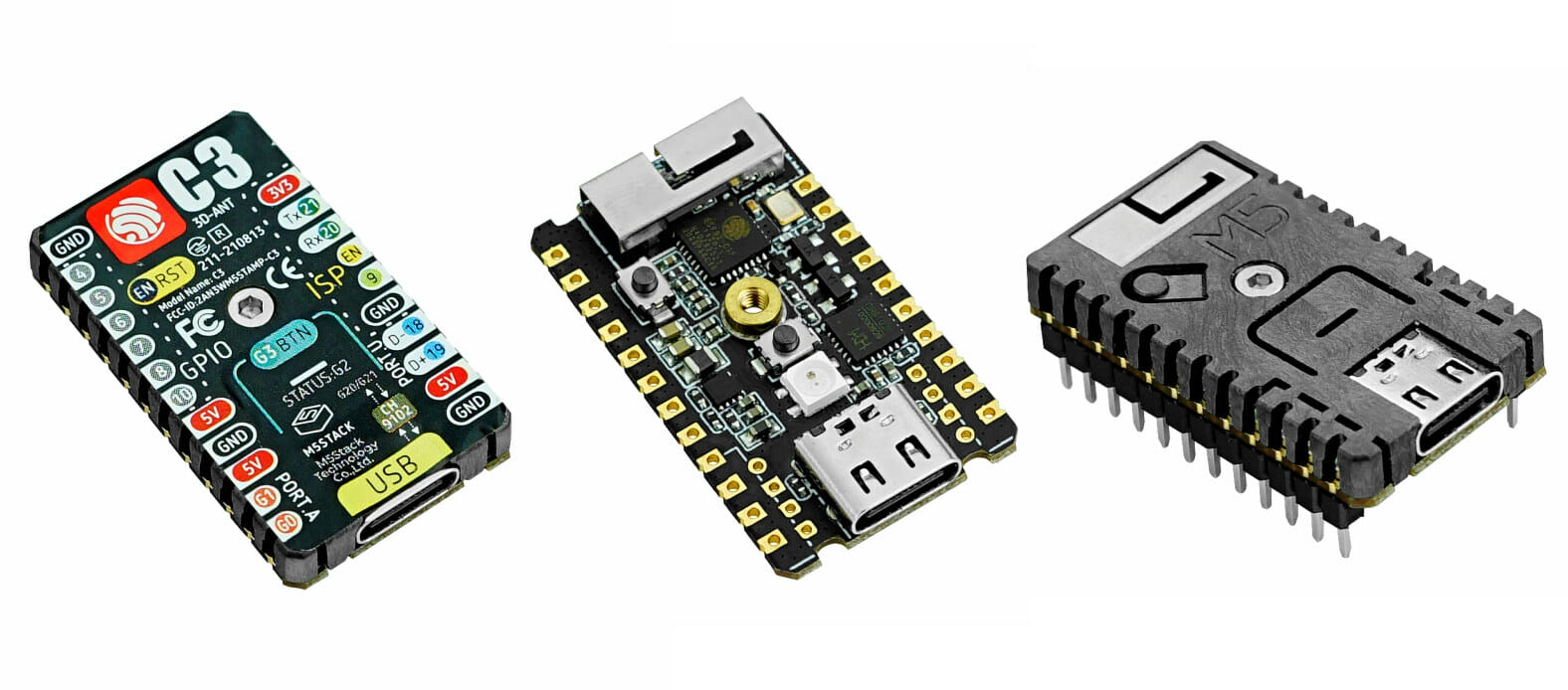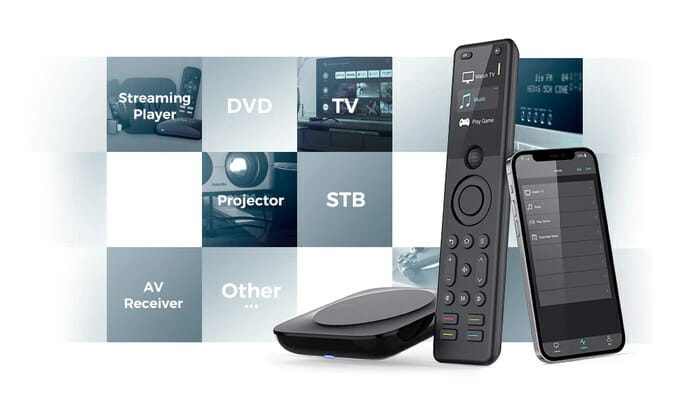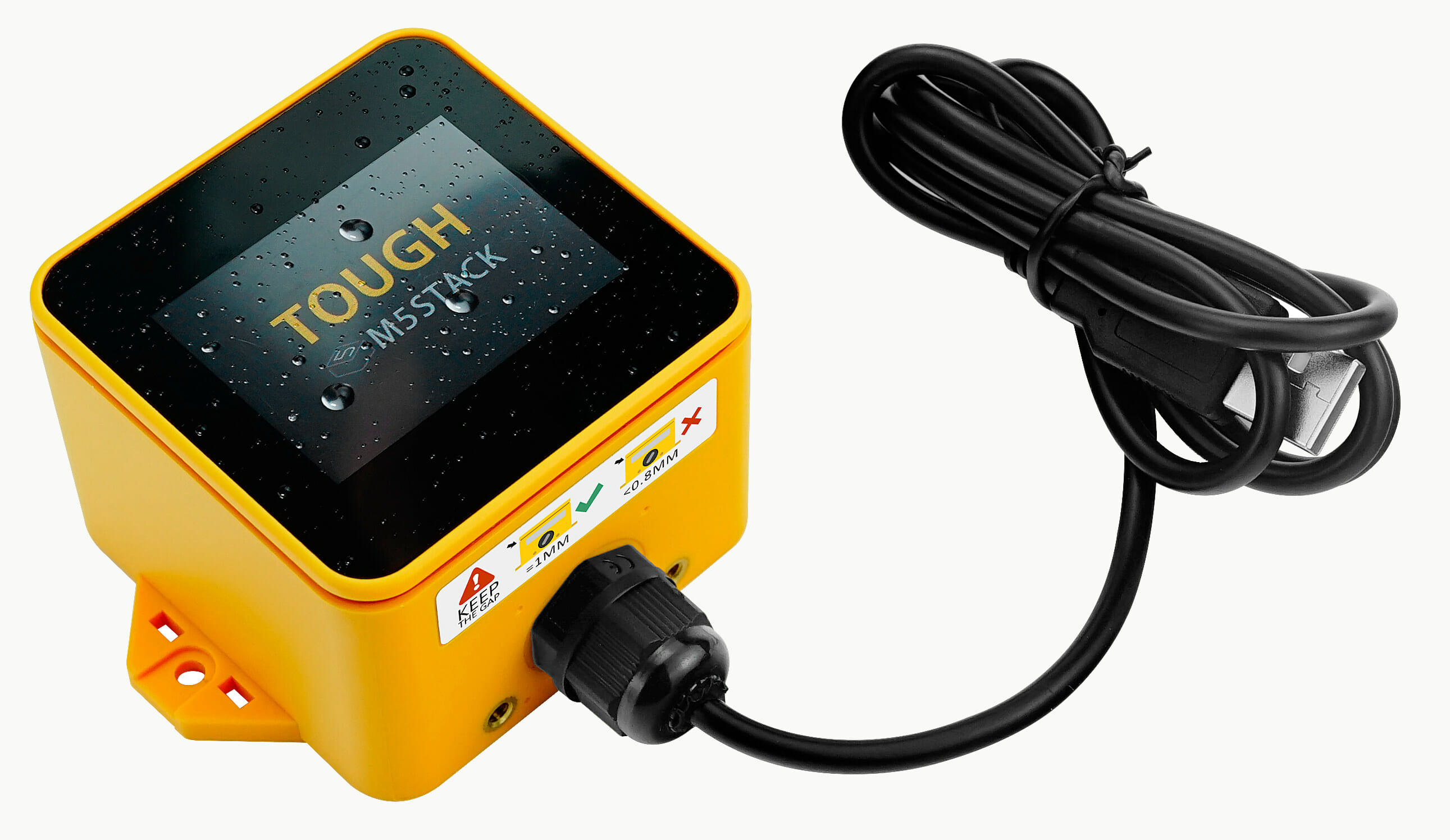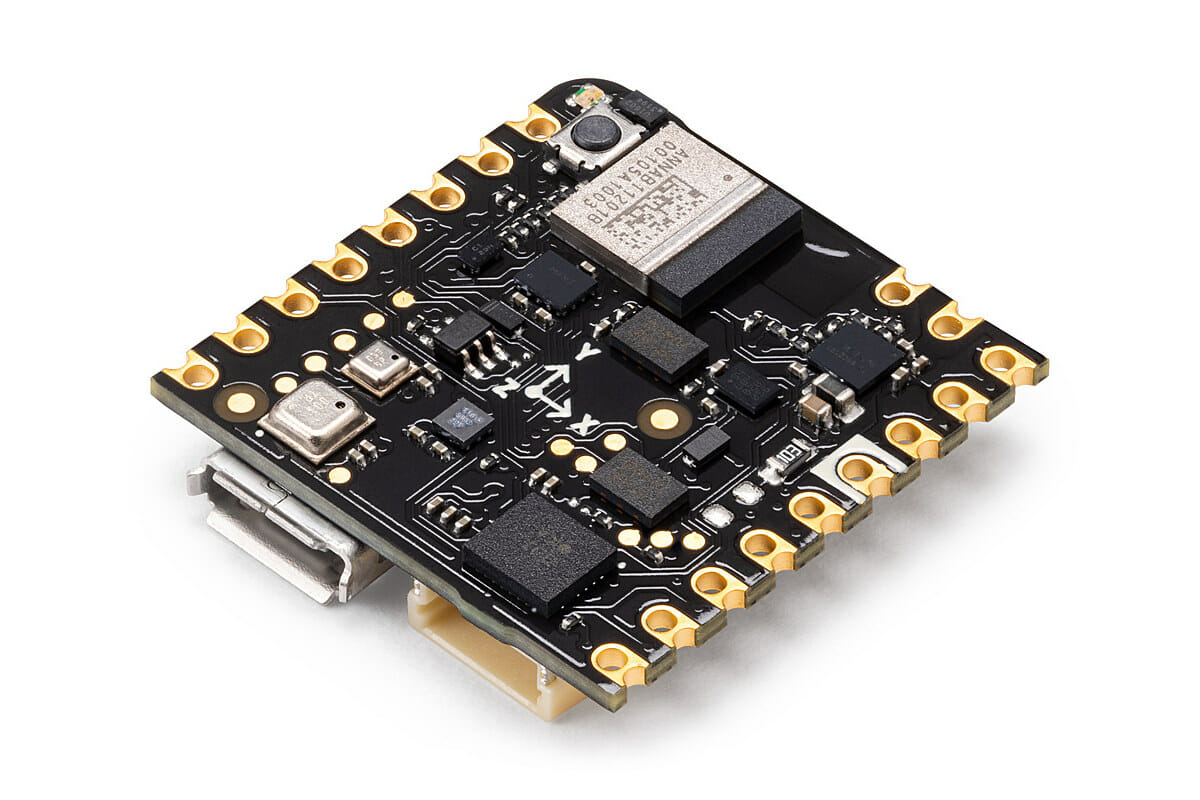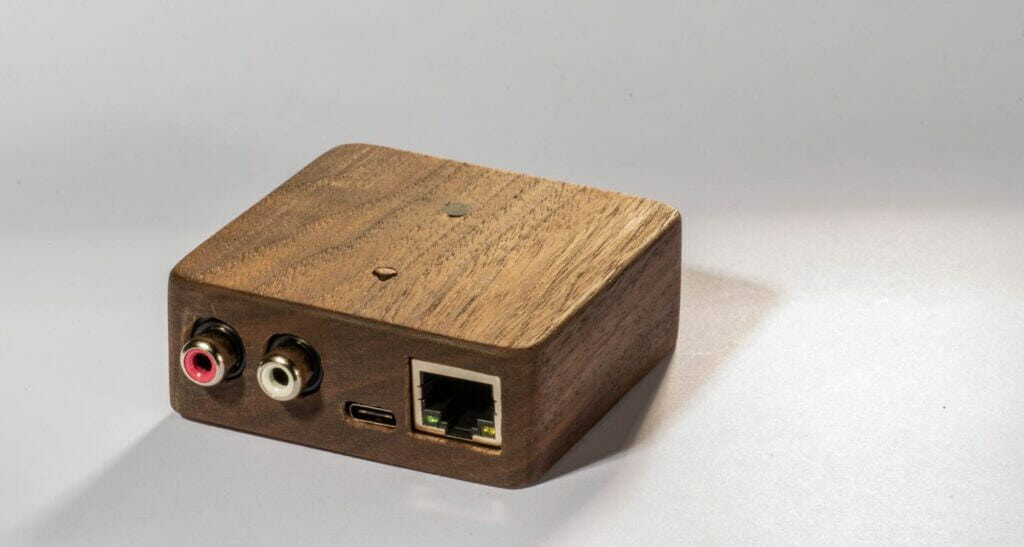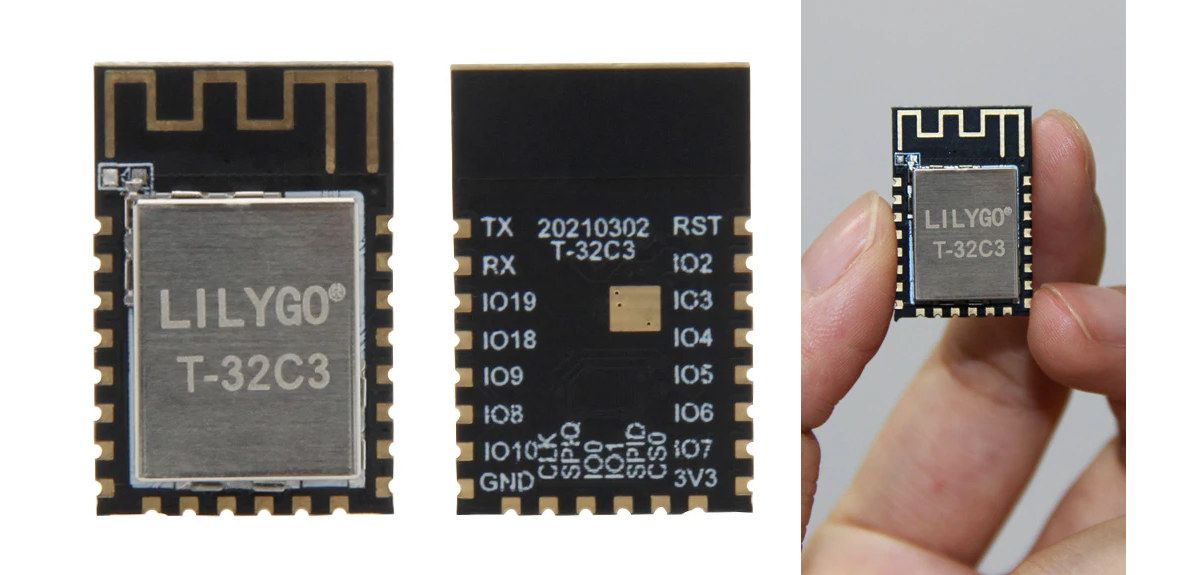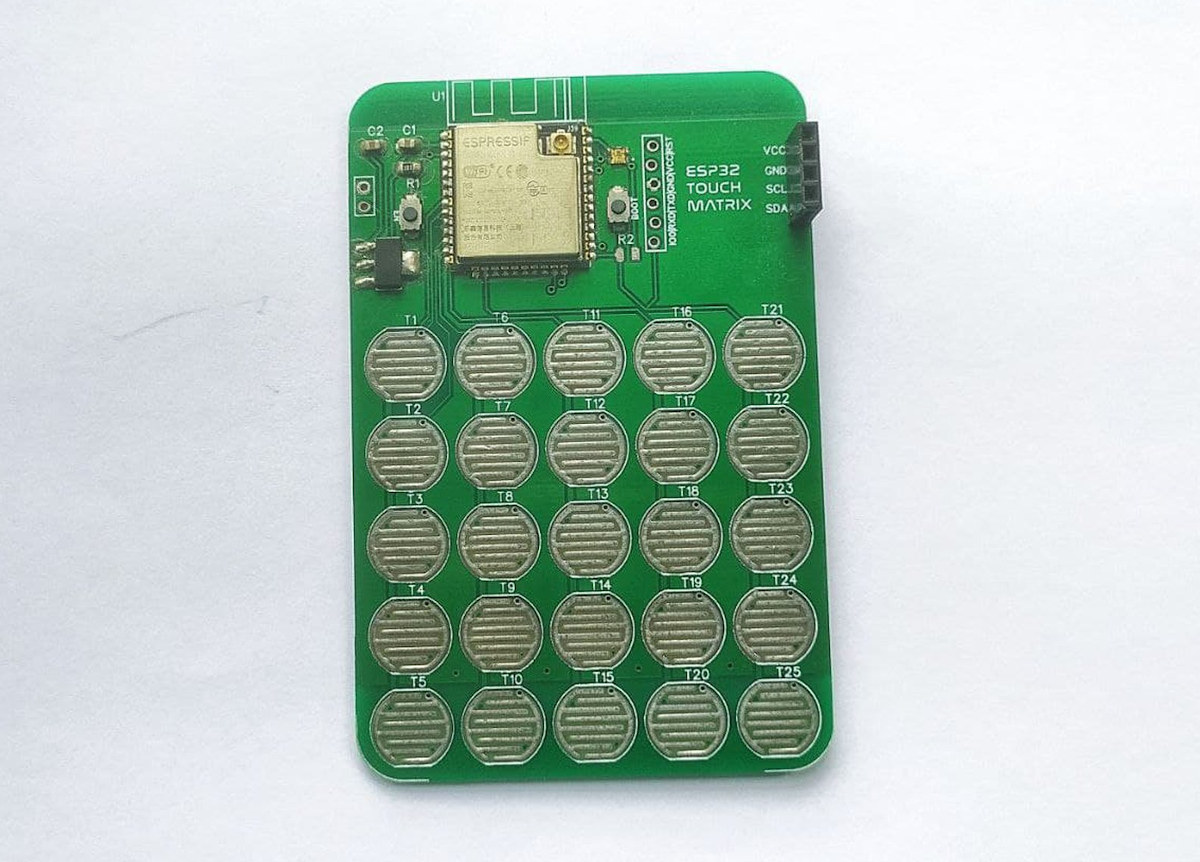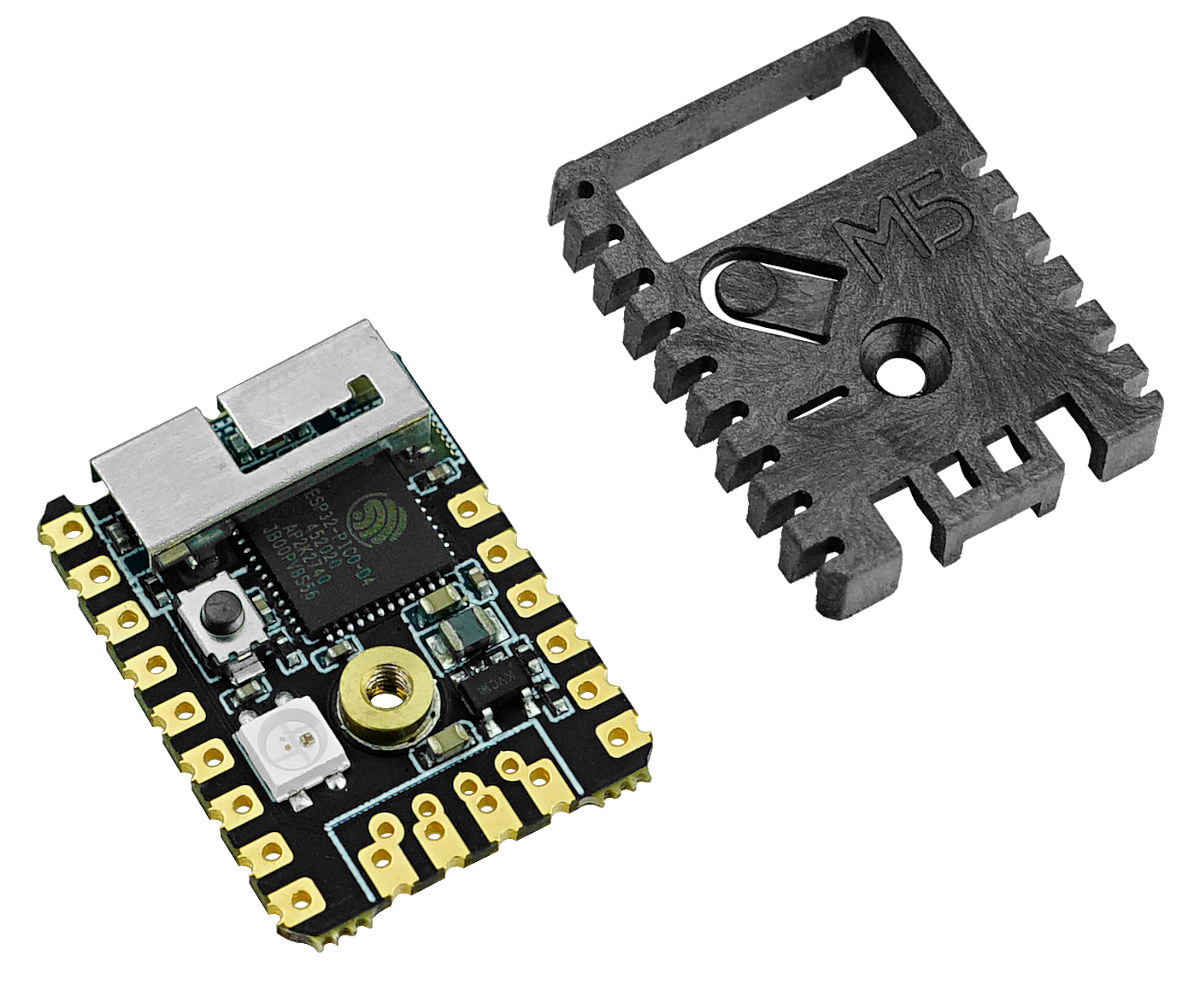It was only last month that M5Stack launched the M5Stamp Pico module based on an ESP32-PICO-D4 SiP and heat-resistant plastic shell, but M5Stamp C3 board is already out with most of the same specifications and features but an ESP32-C3 RISC-V SoC replaces the ESP32 dual-core Xtensa processor. M5Stamp C3 offers WiFi 4 and Bluetooth 5.0 with high bitrate and long-range connectivity and comes with the same heat-resistant plastic shell, but the company also highlights the RSA-3072-based secure boot and the AES-128-XTS-based flash encryption as a more secure way to address Bluetooth security concerns. M5Stamp C3 specifications: WiSoC – ESP32-C3FH4 32-bit single-core RISC-V processor @ up to 160 MHz, with 384KB ROM, 400KB SRAM, 8KB RTC SRAM, 4MB embedded flash, WiFI and Bluetooth Connectivity 2.4 GHz WiFi 4, 20 MHz and 40 MHz bandwidth, IEEE 802.11 b/g/n protocol, up to 150 Mbps Bluetooth 5, Bluetooth mesh, with supports for 125 Kbps, […]
Sofabaton X1 – IR, WiFi & Bluetooth remote control supports over 500k devices (Crowdfunding)
The Sofabaton X1 remote control system aims to replace all your other remote controls in your house thanks to infrared, WiFi and Bluetooth connectivity implemented through the X1 Hub, plus an integrated 2-inch on the remote itself for configuration and device selection. The company claims that over 500,000 devices are supported including TVs, DVD & Blu-Ray players, set-top boxes, gaming consoles, etc…, and voice commands are also supported through Google Home and Amazon Alexa voice services. SofabatonX1 specifications: X1 Hub Connectivity 2.4 GHz 802.11b/g/n Wi-Fi 4 Bluetooth 5.0 LE & Bluetooth 3.0 Infrared – 10 kHz to 100 kHz Power Supply – 5V/2A via USB Type-C port Material – PMMA X1 Remote Connectivity – Not mentioned… Display – 2-inch display with clickable scroll wheel User input – D-Pad, Backlit volume, trick modes, 4x customizable buttons, etc… Battery – 1,050 mAh LiPo battery good for about 2 months on a charge […]
M5Stack TOUGH – A weatherproof ESP32 Industrial IoT controller
M5Stack has launched several ESP32 WiFi & BLuetooth IoT controllers with an integrated display such as M5Stack Core2. The latest model, M5Stack TOUGH, is a little different as it is rugged and waterproof/weatherproof with a UV resistant enclosure sealed with o-ring, and offering waterproof M12 connectors. With protection against solid objects, dust, sand, dirt, and water drops, as well as variety of installation options such as screw mount, rolled strip, magnetic and adhesive back, the M5Stack TOUGH is suitable for more demanding environments from kitchens to factory floors, and outdoor data acquisition. M5Stack TOUGH specifications: SoC – Espressif ESP32-D0WDQ6-V3 dual-core processor @ 240 MHz with 520 KB, 2.4 GHz WiFi, and dual-mode Bluetooth Extra RAM – 8MB PSRAM Storage – 16MB Flash, MicroSD card slot up to 16GB Display – 2-inch color LCD with multi-touch capacitive screen, 320×240 resolution, 853nit brightness; ILI9342C display driver and CHSC6540 chip Audio – NS4168 […]
Nicla Sense ME – Arduino PRO meets Bosch SensorTech’s motion and environmental sensors
Arduino is going full steam ahead with its Arduino PRO family of boards for industrial applications. After the announcement of the Portenta H7 Lite board earlier this month, the company has now introduced the Arduino Nicla Sense ME designed in collaboration with Bosch Sensortec. The Nicla Sense ME (Motion & Environment) board comes with a range of Bosch Sensortec sensors notably a 9DoF smart motion sensor and a 4DoF environmental sensor with AI capabilities, and targets industrial IoT applications either for research projects, rapid prototyping, or commercial products. Arduino Nicla Sense ME specifications: MCU – Nordic Semi nRF52832 Cortex-M4 microcontroller @ 64 MHz with 512KB Flash, 64KB RAM, Bluetooth 4.2/5.0 LE connectivity (via U-blox ANNA B112 module) Storage – 2MB SPI flash for storage; 2MB QSPI dedicated for BHI260AP Sensors BHI260AP motion sensor system with integrated AI, “Fuser 2” 32-bit Synopsys DesignWare ARC EM4 core with RISC FPU BMM150 magnetometer […]
DIY Spotify Box features custom-designed Allwinner V3s SBC
The Spotify Box is a small DIY device based on an Allwinner V3s single-core Cortex-A7 camera SoC and a wooden enclosure designed to play Spotify songs, and not much else… The device serves as a bridge between the official Spotify app and your home audio system connected through the RCA jacks of the box. and allowing you to connect your smartphone to your audio setup and stream music throughout your house. Spotify Box specifications: SoC – Allwinner V3s single-core Cortex-A7 processor @ 1.2 GHz with on-chip 64MB DDR2 Storage – MicroSD card slot for OS Audio – 2x RCA jack for left and right audio Connectivity 10/100M Ethernet RJ45 port 2.4 GHz 802.11b/g/n WiFi 4 and Bluetooth 4.2 via RTL8723DS module Misc – Push button, RGB LED Power Supply – 5V via USB-C port Evan Hailey selected Allwinner V3s over other processors such as NXP i.MX233 or Microchip SAM9N because […]
LILYGO T-32C3 – A small ESP32-C3 WiFi & BLE IoT module with 4MB flash
We’re slowly starting to see more hardware-based on ESP32-C3 RISC-V processor, and LILYGO T-32C3 is a compact module based on the WiFi & Bluetooth LE processor that includes 4MB flash and a PCB antenna. I’d expect T-32C3 to be eventually found in the company’s smartwatches and development boards, and it joins other ESP32-C3 modules from AI Thinker. LILYGO T-32C3 module specifications: SoC – Espressif ESP32-C3 RISC-V processor @ 160 MHz with 400 KB SRAM, 384 KB ROM, 8KB RTC SRAM, 2.4 GHz WiFi 4, Bluetooth 5.0 LE & Mesh Storage – 4MB flash On-board PCB antenna I/Os – 22x castellated holes with GPIO, 3x ADC, SPI, UART, I2C, Boot, Reset, 5V, 3.3V, GND Dimensions – 23 x 11 x 3.5 mm (4-layer PCB) Note the USB interface is not listed in the specs, but USB DN and DP signals are located on GPIO18 and GPIO19 so USB should also be […]
25-key ESP32 Touch Matrix makes good use of ESP32’s touch sensor interface
Besides the addition of Bluetooth, there are many differences between ESP8266 and ESP32 and one of the lesser-known interfaces may be ESP32’s touch sensor interface. India-based Electro Point’s ESP32 Touch Matrix makes good use of the touch sensor interface with 25 touch pads arranged in a 5×5 matrix creating a wireless keypad that could connect over WiFi or Bluetooth to a host. ESP32 Touch Matrix board specifications: Wireless module – ESP32-WROOM-32U with Espressif ESP32-D0WD dual-core Tensilica processor, 32Mbit SPI flash, 2.4 GHz WiFi, and Bluetooth LE connectivity 25 keys arranged in a 5×5 matrix Expansion – 4-pin I2C header for expansion, e.g. an OLED display Programming – Programming headers Misc – RGB status indicator, EN button Power Supply – 5V input via 2-pin header; built-in 3.3v regulator for ESP32 Dimensions – TBD When a capacitive load, such as a human hand) is in close proximity to the sense-pad, the sensor […]
M5Stamp Pico ESP32-PICO-D4 module ships with a heat-resistant plastic shell
Most WiFi IoT modules are designed to be integrated into products with an enclosure, but the M5Stamp Pico module based on ESP32-PICO-D4 SiP comes with a removable heat-resistant plastic shell that protects the 3D antenna and components, while leaving space to solder headers and/or a Grove connector. The tiny module also comes with a button and RGB LED, and like other ESP32-based M5Stack hardware, M5Stamp Pico is programmable with UIFlow graphical programming platform and compatible with Arduino, MicroPython, and the ESP-IDF. M5Stamp Pico specifications: System-in-Package – Espressif Systems ESP32-PICO-D4 SiP with dual-core processor @ 240MHz, 520KB SRAM, 4MB flash, and 2.4 GHz Wi-Fi 4 up to 150 Mbps and Bluetooth 4.2 BR/LE connectivity Antenna – 2.4 GHz 3D antenna I/Os – 2.54mm pitch header with ADC, DAC, touch sensor, SD/SDIO/MMC host controller, SPI, SDIO/SPI slave controller, EMAC, PWM, UART, I2C, I2S, IR remote controller, up to 12x GPIO, pulse counter […]


